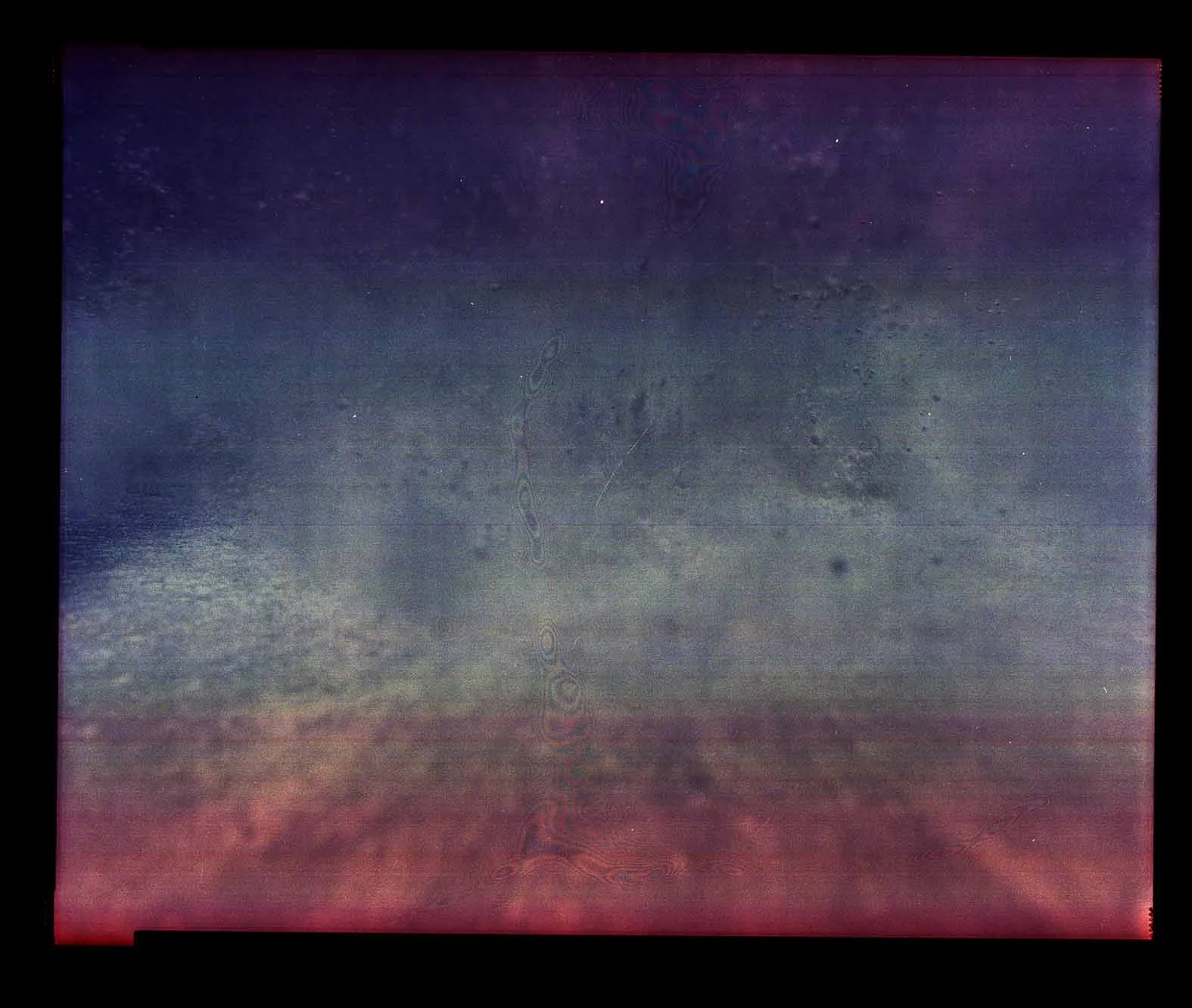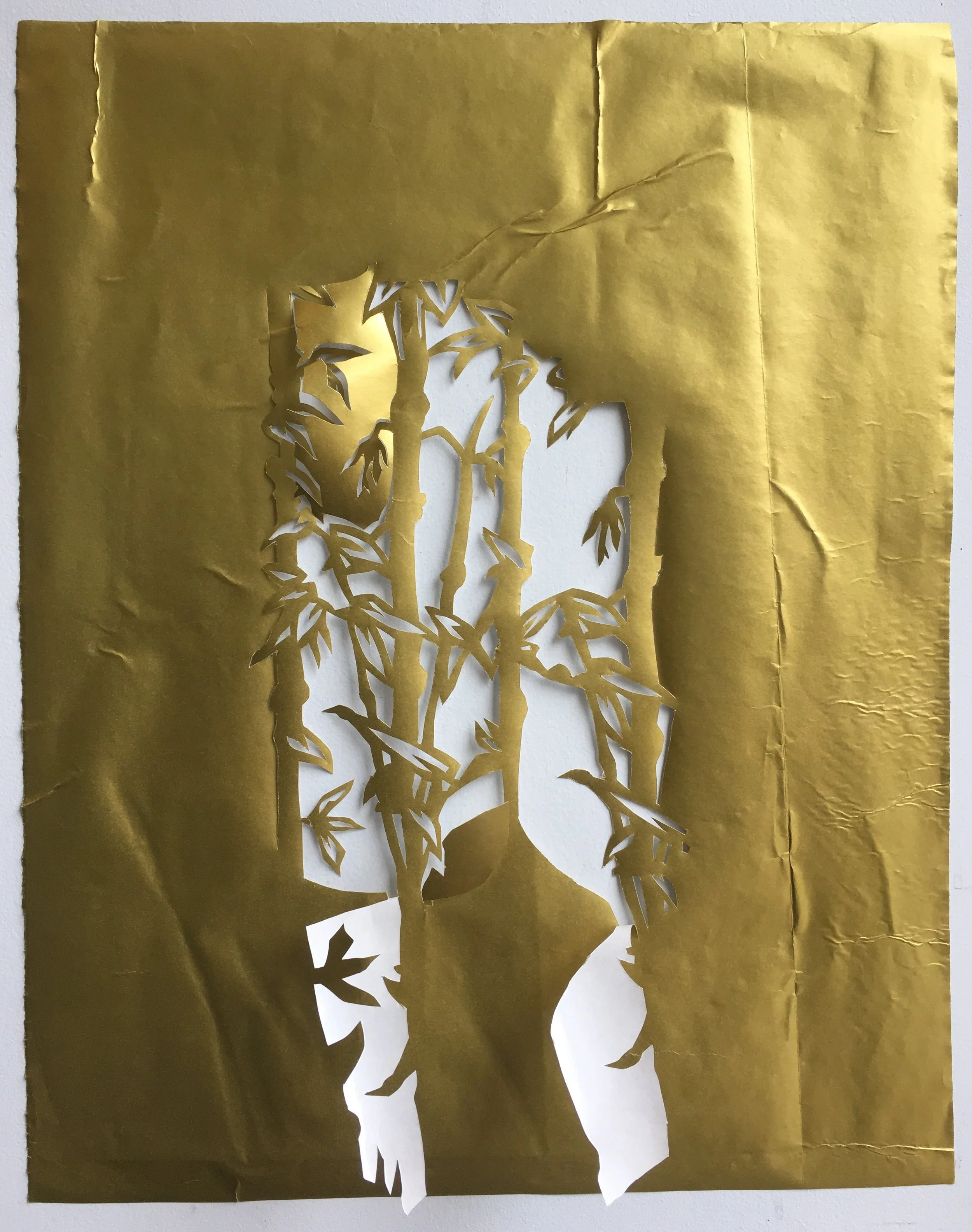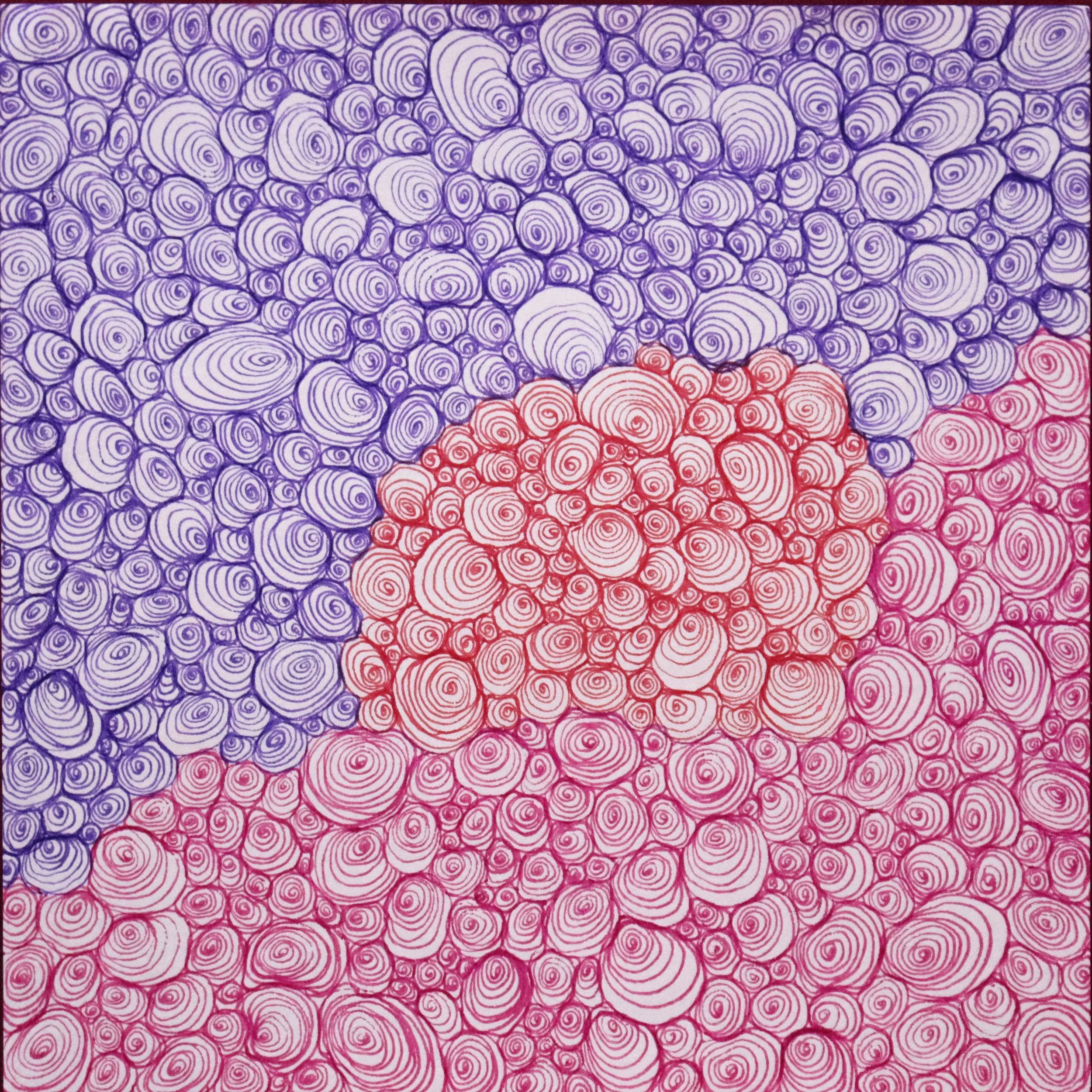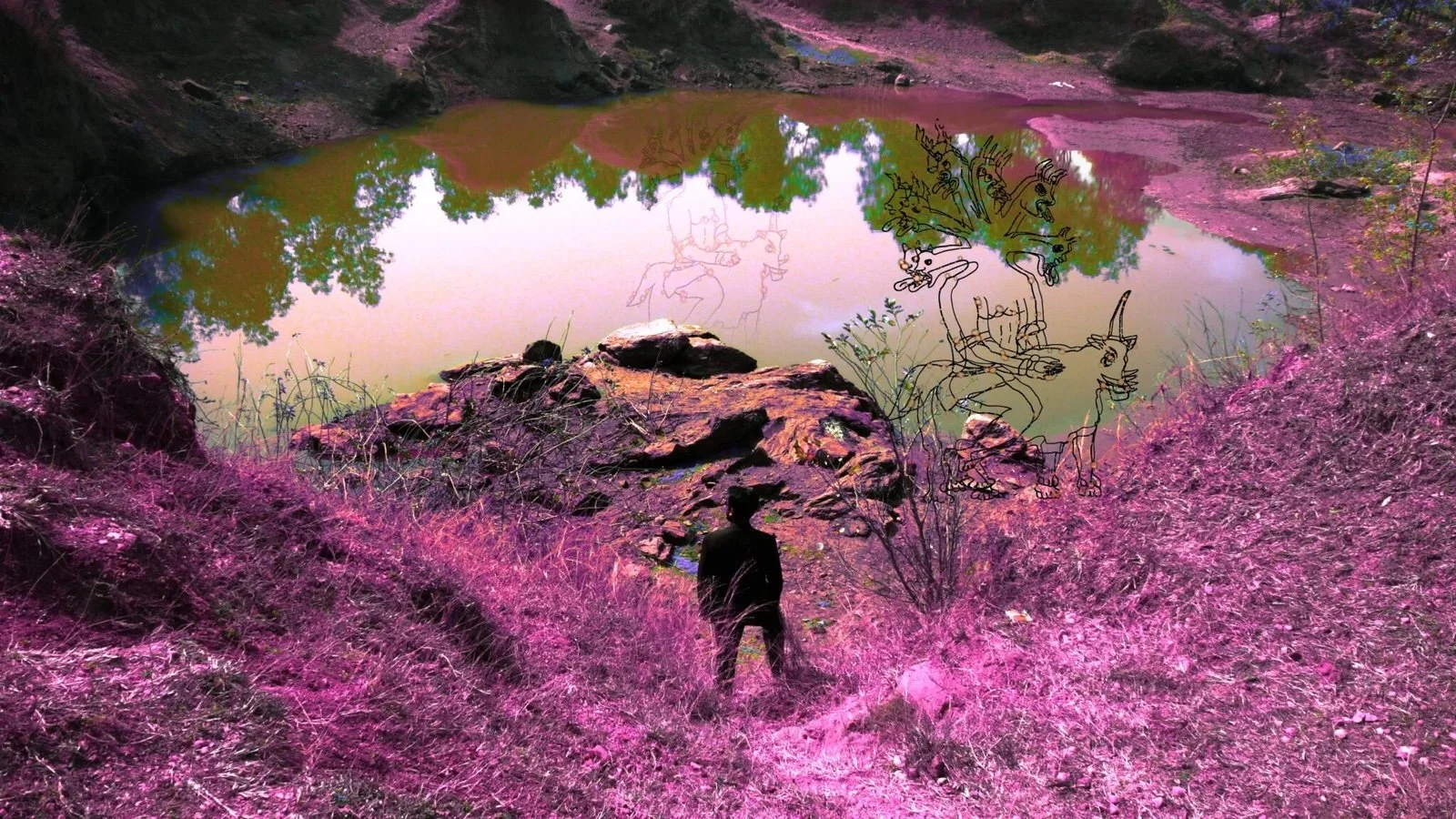A Handful of Land
By Ayesha Khan
On the day of the first monsoon shower, five-month-old Zébun smiled for the first time. The infant had shown no signs of emotion till that day. When the newborn was passed from one pair of adult hands to the next, it did not so much as let out a shriek or a cry. For the next few months, the baby bore no expressions. She did not whine when hungry. Not a single tear was shed. No baby tantrums to seek attention of the elders. She lay in her cradle, motionless, with eyes that never seemed to blink. Through long eyelashes that curled at the ends, her gaze penetrated the ceiling and the sky above, and seemed to be fixed somewhere in an infinity. Only occasionally did her hands flutter; her legs kick and the cradle rock, as if to ward off the perils of existence. The parents gaped in horror, the aunts whispered whispers, the uncles hushed hushes. The children waved their hands over her eyes to see if she would trace the motion. The dai brought in kohl made from burnt almonds. But even when the black greasy substance was smeared in her eyes, they refused to blink. The parents secretly wondered if the child would begin to speak late, or ever at all. The grandparents decreed that these were bad omens, signs of some curse perhaps. The aunts clung to their whispers, the uncles to their hushed tones. The children circled the baby in wonder. And when all had despaired and the house lay still on a hot June afternoon, the child smiled. As the rain fell, first a drizzle and then building up to a heavy downpour, perhaps too heavy for a first day rain of the season, the child let out squeals of laughter. A scent of moist soil from the backyard took over the house. The deeper the water seeped into the soil, the more overpowering the scent became. By the evening, it had reached every corner of the house. In the kitchen, it mixed with that of spices. In the old woman’s room, it mingled with the sharp fragrance of itr and in the guest room, it stayed on the fresh flowers in the vases. The scent crept under the child’s cradle, rocked it to and fro and the child smiled. And chuckled. And laughed. It made its way into her tiny nostrils. For the first time, Baby Zébun showed signs of vitality. The elders assumed it was the rain that had brought the welcome change. The oldest of the house decreed it was indeed the rains – the water from the heavens. It was a cure for all human ailments, they said. And so, no one suspected that the soil had had any role in it. The house had stirred to life. Its residents rejoiced. Glances of relief and nods of approval were exchanged, Zébun’s laughter celebrated.
Daniel Lie - Death Center for the Living (2017), in partnership with Vivian Caccuri (sound design and original music), Installation view (Vienna Festwochen, Vienna, Austria)
Image description: A large-scale installation occupies an indoor space with worn-out walls. Plants, fabric, dirt, and flowers form an elaborate, intentionally arranged ecosystem. In the center of the room, two circular layers of tubular structures made of hemp fabric hang from the ceiling. The lower layer is held up by eight ropes; it hangs down heavily. Its surface is covered in green, sprouting seeds. Above it, another brown, fabric structure has bundles of flowers hanging down all around it. The flowers are yellow and white with green stems. In the middle of the circle formed by the hanging structures, two cannabis trees grow from a terracotta pot placed on the ground. They are lit by a bright spotlight. The terracotta pot is lined with flowers. The ground of the space is covered completely in grass, straw, and dirt. Straw mats are arranged in concentric circles on the ground.
Zébun was the first child born to a couple nearing their forties. There had been debates and arguments as to what the child was to be named. Books with lists of Arabic names were brought out. Maulanas consulted. The names already taken by members of their extended family crossed out. And names of dead ancestors recalled. Zébun’s great-grandmother had been a fastidious woman, constantly complaining of specks of dust getting collected in the corners of her room and on the windowsills. She cleaned the kitchen meticulously. She afforded no signs of dust anywhere, no specks of it on her glasses and none in the backyard. Zébun was named after her.
Zébun’s childhood days were all alike. She grew up being scolded and chided when found in the backyard with her little fingernails scratching the earth. Nobody, who saw her growing, remembered seeing her nibbling on anything but lumps of earth. Flakes and lumps, and handfuls of it between meals too. The photographs, her childhood preserved in them, showed a plump, fair child with soil all over the mouth. Each day, as the adult world got caught in the web it had spun for itself, Baby Zébun would sneak out unnoticed. She made her way to the backyard and without making a sound, dutifully resumed her routine of feeding on the moist soil. She devoured lumps of earth like they were mashed potatoes. And so by the time she was five, the only food the child knew was the soil from the kitchen garden.
It was the child’s only food. It made up all her meals which were to be taken at fixed hours each day. She would be seen crawling out on her knees in broad daylight, sitting under the sun and chewing mouthfuls of earth. She would do the same in the afternoons irrespective of the weather. Rains never deterred her. The sun never bothered. It was food after all, it had to be toiled for. As the day darkened, the first call of Magrib would be an indication to leave her dolls on the mat and sneak out. The child did this with such religiosity that many theories were proposed to explain the unusual habit. The relatives intervened, the extended family suggested a list of hakims, the neighbours passed worried glances. Zébun was only talked of in subdued tones with disapproving nods. There were speculations. And prophecies. And heresies. And rumours.
Whoever remembered Baby Zébun remembered a child with a round face, cherry-red lips and a mouth always telling that she had recently dug another hole in the backyard. As she grew, the holes became pits. She shovelled mud out with much ease. Her appetite increased, her pace of digging out the land knew no bounds and the skin around the mouth grew browner than ever. Anyone who was to look at her would think the child probably had a birthmark on her face; that she was perhaps born with a brown patch of skin around the mouth. It was not anything like the black dot mark on every child’s cheek meant to protect from nazar or the evil eye, or the prayer bump on the foreheads of devout men. It was rather more like a prominent feature of her face. On days with a cleaner mouth, Baby Zébun looked unusual, almost unnatural. It seemed as if by carrying around that brown patch on her face, the child had marked the kitchen garden as her territory, as if she was claiming the small piece of land as hers, for she had toiled on it each day.
Even after the kitchen garden was gone, concreted over with cement, the girl found ways to hammer her way through the thick layer of cement into the earth. Concealed beneath the hardened grey substance lay the brown soil, pure and untouched. The cement would be scrapped off, the stones removed, the good earth dug out, hands filled and the mouth dirtied. Even when the azaans were no longer to be heard and the loudspeakers had been silenced, Zébun’s pilgrimage-like expeditions to the backyard did not stop. Nothing puzzled the child. No adult guided her. She needed no reminders to eat. The elders did not cajole her into eating like they did with the other children. It was as though the child heard a voice each day at fixed hours and knew it was time to eat. And so when the house shook with sounds of wailing children and cursing elders, the child knew. When the elders fought and threw china cups at each other, the child knew. When the children threw tantrums and the grandmother thrashed them, the child knew. With the slightest commotion, the child knew it was time to withdraw. When the parents fought and blamed, it was time. When the grandmother began to see men with white beards gathering around her cot, it was time. When someone’s glasses went missing or when the grandfather’s rosary couldn’t be found, it was time. When once in the month of June, the rains forgot to stop and the letters poured in just like water, it was time. It was time to withdraw to the backyard; time to reclaim her patch of land.
The letters became even more frequent than the visits of unexpected relatives. Someone in a public office, not far from Zébun's home, had decreed that Zébun's family did not belong to the land they had lived on for generations. Scores of letters in crisp envelopes barged into the house every other day. "Leave," the letters said. The lean postman stopped at the gate more often. The postman’s bicycle grew accustomed to halting in front of the house which was now beginning to resemble an old stooped man in his final years. The same envelopes arrived every time with similar stamps. The same looks were exchanged between the postman and any elder who received them. Letters coming in became as much a routine as Zébun sneaking out to the backyard. They were no different than the usual letters but the elders chose to call them ‘notices’ instead; elders with their strange ways and their habit of using different names for the same things. So a letter was called a notice. And more notices poured in. They became so frequent that they stopped bothering to open them. Perhaps because they contained the same content, the same few dry words written in a rough hand and sealed with wax in pale white envelopes. The postman visited so often that the house began to detest the very sight of his bicycle. The envelopes began to pile up. A new stack mounted next to the stack of old newspapers in the storeroom.
The stack continued to mount until the day a final letter arrived. A letter with the same words written in the same hand with the usual envelope and stamp. Only this time it wasn’t just the letter. An hour after it was delivered, a group of men walked in through the gates. The visit stirred the house into action. Until that visit, the house had seemed what it had always seemed like: calm and safe. They weren’t the old men in white clothes with white beards that only the grandmother had so often seen around her cot. They were tall young men, all in the same clothes, the clothes of a shade darker than the postman’s uniform.
That morning, a storm raged outside and grew impatient for want of attention. But the house was too occupied to take notice. So the wind rattled the doors and shut the windows with loud thuds; the panes of some cracked. But the elders had no time. The dried slices of raw mangoes in the veranda remained unattended to. The dried chillies gathered dust. But the elders had no time. Old documents were vainly sought for. Moth-eaten papers were skimmed through. Pleas made. Pleas rejected. Appeals made, appeals denied. Eyes watered, eyes dried. Clothes tied in bundles, only to be untied again and the contents replaced with more important ones. Mattresses were rolled to resemble bales of hay. Kitchenware was fitted into large tin containers, only to be pushed closer to make space for a spoon here or a namakdaani there. The lids of baskets refused to close. In the storeroom, rusted trunks, probably as old as the grandmother herself, were brought down from the highest shelves. Grandmother’s safes were unlocked. The old woman gathered her treasure in a bag sewn out of discarded bed sheets. Children’s books had to be neglected. There were photo albums that needed space. Cobwebbed almirahs were opened. Lifeless documents were pinned together and pushed into suitcases. Letters in yellowing paper with missing envelopes were secretly tripped into pockets. Orders to make haste were heard. Take this, leave that; difficult choices made. More pleas made. More pleas rejected.
“Not your place,” the visitors said. “Not your place,” the children chanted. “Not your place,” the house echoed. “Not your place,” the child remembered.
And the child knew that it was time. She dragged a tiny wicker basket to the backyard and filled it with one, just one handful of soil from the kitchen garden. The house was vacated the same day; the city abandoned; the mosque loudspeaker never heard. And Zébun stopped eating mud. Whatever handfuls of it she had carried could not be eaten. The child refused any offers of it picked from the many roadside spots. The red soil of the mountains or the damp one on the riverbank, nothing pleased her. And not for once did the contents of the basket tempt her; it was as if the child had decided that it had to be saved, that it was the last of what she had taken away from the backyard, the last of what would remain of her childhood. The child knew. It was time. And so the elders walked. The grandmother lurched. The children ran. Baby Zébun, though no longer a baby but also not enough grown enough to be made to walk, was made to switch places. She went from one pair of adult shoulders to another. Elders taking turns. The child passed from arms with loose grips to warmer laps. Elders with moist eyes, children with confused faces, the grandmother with a burrowing hole in the heart. The child, expressionless. Only a basketful of soil, a handful of her land.
Daniel Lie - Death Center for the Living (2017), in partnership with Vivian Caccuri (sound design and original music), Installation view (Vienna Festwochen, Vienna, Austria)
Image description: The image shows a close-up of a winding, horizontal, tubular structure made of plants and brown fabric. Held up by ropes above it, the structure hangs down, touching the ground, which is covered in straw and dirt. The upper surface of the structure is covered in lush, green, sprouting seeds. In the background are gray walls.
Ayesha Khan (she/her) is based out of a town in Himachal Pradesh, India. She works as an Assistant Professor of English Literature. She writes in English and Urdu, neither of which is her first language. Twitter @aayeshaa_khan
*
Daniel Lie (they/them) | Building on legacies of migration and queer studies, Daniel Lie’s work demonstrates how abjection can be a tool of subversion and expansion. Their practice celebrates natural cycles of transformation and the many interdependent exchanges that structure ecosystems. A fundamental aspect of Daniel Lie’s practice is their desire to develop works which de-center human agency and subjectivity.
Working in collaboration with forces they term “other-than-human beings,” such as bacteria, fungi, plants, animals, minerals, spirits, and ancestors, Lie creates site- and time-specific works that can be experienced through multisensory channels. By giving visibility to materials that morph, decay, and evolve, Lie’s ecosystems highlight the intimate yet expansive coexistences among diverse beings, acknowledging our shared and continuous participation in the processes of living, dying, and decomposing.
Daniel (b.1988) is trans-nonbinary, and is currently based in Berlin.
Text by Bernardo Mosqueira for Daniel Lie’s solo show Unnamed Entities, 2022 - NY - USA
If you’ve enjoyed reading this article, please consider making a donation. Your donation goes towards paying our contributors and a modest stipend to our editors. Singapore Unbound is powered by volunteers, and we depend on individual supporters. To maintain our independence, we do not seek or accept direct funding from any government.











‘But later… we didn’t talk about love. We talk about the land and its people.’ – a short story by Kaushik Ranjan Bora, translated from the Assamese by Aruni Kashyap.